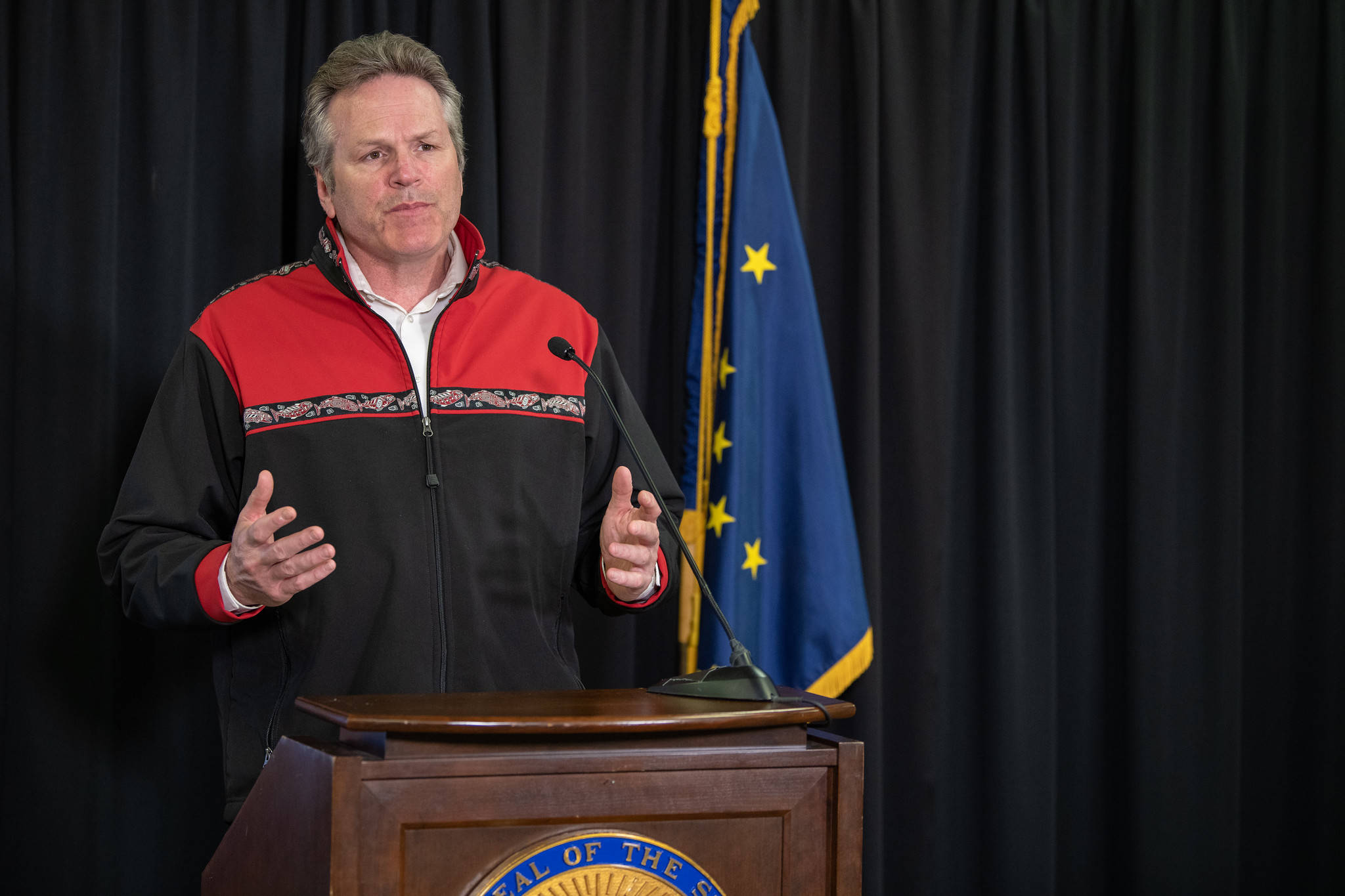Faced with a lawsuit potentially holding up $900 million in federal aid, lawmakers were on their way to Juneau Friday afternoon so the body could reconvene on Monday.
Juneau man Eric Forrer filed a suit against the state Wednesday for attempting to use the revised program legislative requests, or RPL, process to allocate federal COVID-19 relief money.
After conversations Thursday night, lawmakers were told by caucus leadership to buy plane tickets to Juneau, according to Sen. Jesse Kiehl, D-Juneau.
“This timing is very challenging,” Kiehl said.
The constitutional end of this session is 11:59 p.m. Wednesday, but the Legislature could vote for an extension or call itself into a special session, Kiehl said. An extension would need a two-thirds vote in both houses, Kiehl said, something he said doesn’t seem likely. It’s more likely lawmakers will vote to simply ratify what Gov. Mike Dunleavy appropriated in the RPL process, which would need a three-quarters vote.
“I think it’d be more difficult to get two-thirds to extend than three-quarters for super speed,” Kiehl said. “Most legislators are interested in getting the cash on the street.”
Legislators, who spoke to the Empire, said passing legislation before the end of the session is a top priority.
[Juneau man sues state over coronavirus relief distribution]
“We are working side-by-side in the Legislature and with the governor to get this done before the regular session ends at midnight next Wednesday,” House Speaker Bryce Edgmon, I-Dillingham, said in a statement.
Senate President Cathy Giessel, R-Anchorage, told the Empire the majority of senate members are committed to getting the ratification process done before the official close of the session.
“My caucus is not interested in the food fight,” said House Minority Leader Lance Pruitt, R-Anchorage.
The decision was made following Forrer’s lawsuit, which question the constitutionality of using RPLs for funding certain state programs. Legislative lawyers warned lawmakers of legal issues surrounding the governor’s proposal to use RPLs to fund programs that don’t already have the legal ability to receive federal funds.
Some lawmakers, including Kiehl, wanted to return to Juneau last week to try to avoid this exact issue but were rebuffed in the name of expediency.
In an interview Friday, Forrer said he is encouraged by the move, and hoped legislators could move past partisanship and act constitutionally.
“Being in the position of stalling this money has some uncomfortable pieces to it,” Forrer said.
But not uncomfortable enough, Forrer said, to ignore the constitution. Adherence to objective legal documents is of critical importance particularly during a crisis, he said. Without it, Forrer said “it amounts to society starting to collapse. It’s the beginning of a very serious end.”
Forrer’s lawyer Joe Geldhof said in his opinion as long as the Legislature focuses on the relief money and stays away from other issues, work can get done before Wednesday.
“I really commend the senate president and the speaker for doing the right thing according to the constitution without getting dragged into extraneous matters,” Geldhof said. “I just hope the Legislature can work as cheerfully and cooperatively as possible and get this money out to the cit who need this in a way that is constitutional.”
[Back to Juneau? Some lawmakers think it’s time]
Geldhof told the Empire Thursday without action from the state, he would file an application for a temporary restraining order by Monday afternoon. If a judge were to approve the order, distribution of federal CARES Act money would be held until the matter was resolved in court. Considering that possibility, legislative leaders decided to act quickly to try to get the money out free of any potential legal challenge.
“It is vital the Legislature make sure there is no obstacle,” Giessel said. “What the Juneau citizen and his Juneau attorney are asking for is a restraining order that would prevent the money from being issued.”
At a press conference Friday afternoon, Dunleavy said lawsuits were an inevitable part of any legislation.
“There will always be lawsuits, we believe in what we did was the right thing,” he said, adding his administration worked with various state departments to follow what they believed was the intent of Congress and President Donald Trump.
“It’s our understanding that the Legislature wants to get this thing taken care of,” Dunleavy said. “I think you’ll see (ratification) happen by midweek.”
As of Friday afternoon, the Alaska State Legislature’s website had been updated to say the House and Senate would be reconvening at 2 p.m. Monday.

